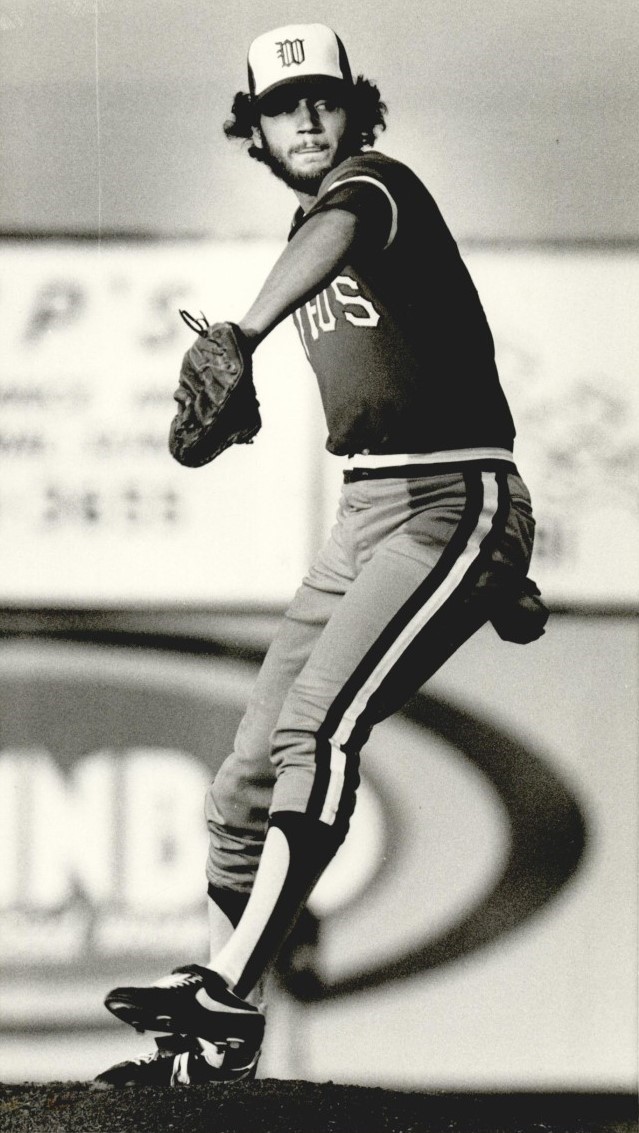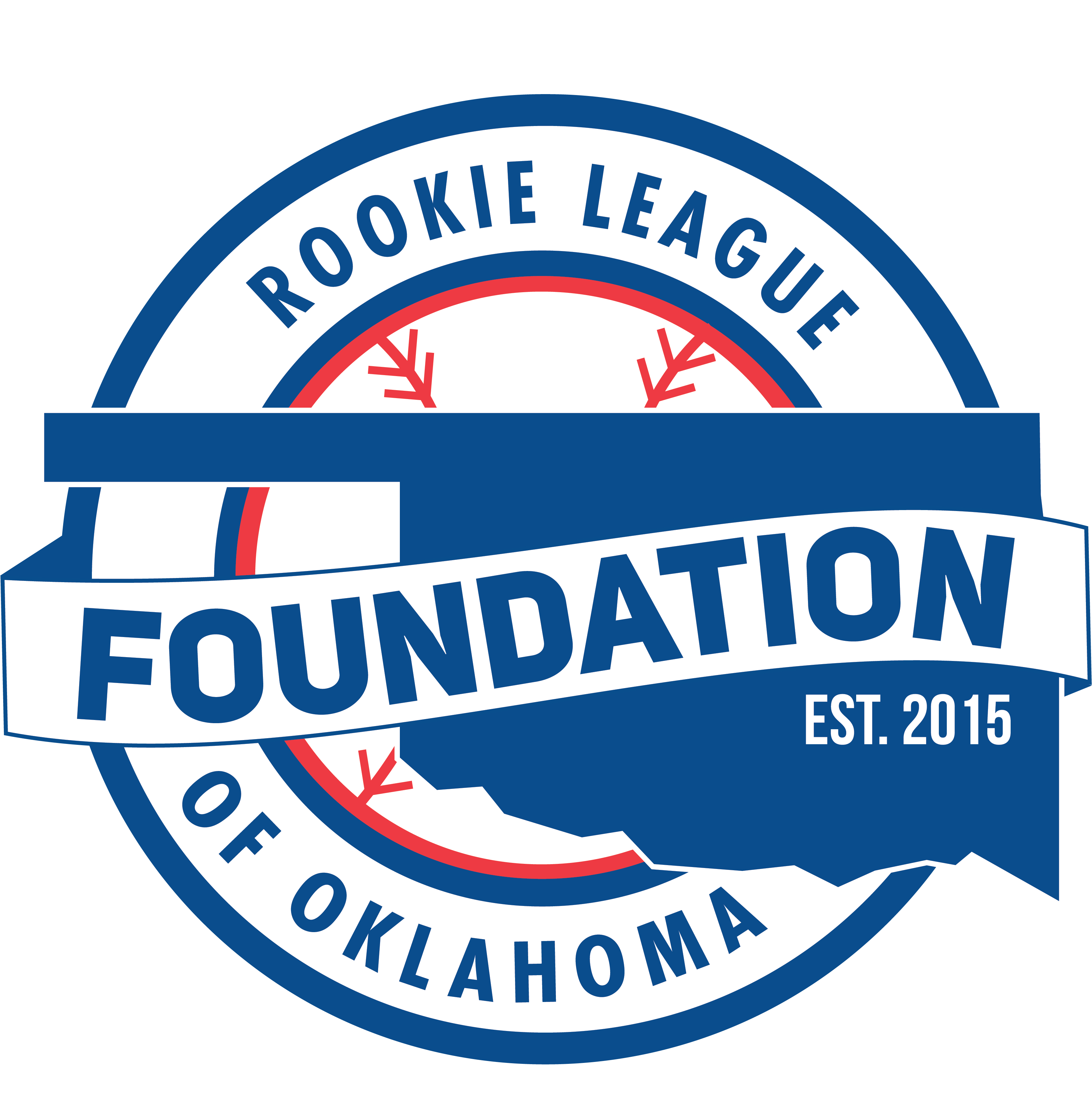Catching Up With Jim Kern

Jim Kern’s raw pitching talent became evident during his high school and American Legion playing days in his hometown of Midland, Mich. in the mid-1960s. As a towering figure on the mound, he struck out scores of batters with a 90-plus MPH fastball as a teenager. Despite his natural gifts, Kern’s path from his hometown to the Major Leagues was anything but typical for the man who would become known to the baseball world as The Amazing Emu.
After signing as an amateur free agent with the Cleveland Indians (now Guardians), Kern played one season of low A ball in 1968 before enlisting in the United States Marine Corps in 1969. After serving a 12-month hitch he returned to baseball in 1970, working his way up the minor league chain before making his Major League debut as a late season call-up with the Indians in 1974.
Kern earned that late season promotion after achieving a breakthrough season with the Oklahoma City 89ers. He earned the Allie P. Reynolds Award, awarded to the American Association Pitcher of the Year, after posting a 17-7 record with a 2.52 ERA and 220 strikeouts in a 189.0 innings pitched.
Despite the uptick in his career, Kern’s baseball future was far from certain after he posted a 1-2 record with the Indians in 1975. That all changed when at 27 years old, he was converted to Cleveland’s closer in 1976.
Kern was arguably baseball’s best closer over the four-year span of 1976-79, with three of those seasons spent in Cleveland and one with the Texas Rangers. He registered a 41-32 record with 75 saves and was a three-time All Star during that stretch. Kern was named American League Rolaids Relief Pitcher of the Year in 1979 after posting a 13-5 record with 29 saves and a 1.57 ERA in his first season as a Ranger.
Injuries sustained during the 1980 season interrupted Kern’s upward career trajectory. He would play with five other big-league teams after leaving the Rangers after the 1981 season before retiring midway through the 1986 season with 13 years of Major League service to his credit. Kern finished with a 53-57 career record with 88 saves and 651 strikeouts in 793.1 innings pitched.
Legendary Texas Rangers catcher Jim Sundberg saw a lot of pitching talent during his 16-year career. He says that Kern was one of the most talented pitchers he ever caught, high praise considering some of the other names on that list.
“I caught nine Hall of Fame pitchers in my career, starting with catching Fergie Jenkins in my first MLB game to Nolan Ryan in my last game,” Sundberg said. “Catching Jim Kern was one of the best experiences I had in my sixteen years. Jim had amazing control of his fastball and could throw his changeup in any situation. It was lights out when Jim came into the game!” said Sundberg.
Kern is one of 24 players enshrined in the Oklahoma City 89ers Hall of Fame. A lifetime avid outdoorsman, he established his Emu Outfitting Company in Arlington, Texas in 1987. That company is approaching its 40th year of providing unique hunting, fishing and photographic tours to exotic locales throughout the world.
Kern is as active as ever but he recently took time to share his thoughts on topics ranging from a memorable season with the Oklahoma City 89ers to the need to make baseball and softball accessible to all youth groups.
What do you remember most about your breakthrough 1974 season with the Oklahoma City 89ers?
The last game of the season I pitched. Red Davis, our manager, had already told me I was getting called up to Cleveland the next day. I was 16-7 for the season, had 201 strikeouts in 180 innings pitched and needed 18 strikeouts to break Harvey Haddix’s all-time strikeout record for the American Association. I was willing to end the season 16 -8 if I could get the strikeout record. A bit selfish I agree, but what can I say, the team was about 15 games under .500 so it didn’t make much difference in the league standings. We were in Denver at Mile High Stadium and my fastball was going to pick up a couple of mph’s and I felt I should be able to run the ball up there around 100 and I was going for it! By the end of the 7th inning, I believe I had 17 K’s and was feeling good about it. I ended the game with a win, my 17th in 25 starts and 19 strikeouts to set a new all-time league record. I finished the season with 220 strikeouts in 189 innings.
The Rookie League Foundation of Oklahoma is on a mission to bring back youth baseball in communities where it has been on the decline over the past several decades due to economic barriers. Do you think creating opportunities is important for the growth of the game?
Damn right! The number of people of color in the game has been reduced dramatically in the last 30 years and I believe this has hurt the level of talent. We need to make the youth game more accessible and this means more fields for all kids to play on, especially in the inner cities.
What lessons are youth missing when they are not given the opportunity to be introduced to baseball and softball?
There is a skill level that needs to be nurtured to be able to achieve someone’s full potential which will enable great athletes to reach the highest level of any sport. I believe success in sports builds one’s self confidence for all aspects of life. If one does not play different types of ball, you cannot obtain this level of confidence that will help you throughout your life.
Anything you want to share about Emu Outfitting Company?
When I retired, I didn’t really retire. I ran out of teams interested in an old relief pitcher who hadn’t gotten anyone out in several years. I retired in 1986, but my arm retired in 1983 after tearing up an elbow. After 1983, I just kind of “modeled uniforms!” I started the Outfitting business in 1987. We have booked and run hunting and fishing trips in Alaska, the mountain states, Brazil’s Amazon, Argentina, Uruguay & Africa over the last 37 years. My wife used to accuse me of playing baseball simply to finance my love of my love of the outdoors! It has gotten me to Brazil’s Amazon 38 times, 20 years of guiding fishermen and bear hunters and managing lodges in remote Alaska, the ability to hunt on nearly a million of the best private ranches in Texas and actually making a living doing it. I have had an awesome life, from 18 to 36 I played professional baseball with the likes of Gaylord Perry, Hank Aaron, Fergie Jenkins, Frank Robinson, Boog Powell, Johnny Bench, Tom Seaver, etc.; every young boy’s dream. From 36 to 75 years old (now), I have been able to hunt, fish and photograph remote parts of the world very few people have ever had the chance to experience. The best part is after 54 years of marriage, my wife still encourages me to do it and I still have the mobility to enable it!
